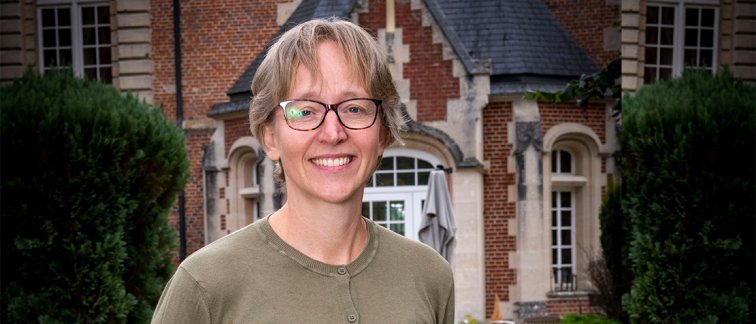What do you do?
Marije: ”I am managing the Clinical Trial Bureau and run a team of nearly 50 people. What we do is organize and oversee all clinical studies for the physicians in the Hematology department. We do many regulatory and organizational tasks that frees up time for researchers to focus on their work. In addition, we work closely with the Haemato Oncology Foundation for Adults in the Netherlands (HOVON) to take care of regulatory paperwork.
“We do many different types of clinical trials, ranging from direct intervention studies, like testing a new medication or a different sequence of treatment, to diagnostic studies – for example, the implementation of new medical imaging technologies.”
What is needed?
“First of all, our partnerships with patients are crucial. It is imperative that patients receive the best possible treatment, even if this means opting out of experimental treatments, or choosing (palliative) care close to home. Enrollment of patients in clinical trials is not decided by us or by our physicians, it is an informed decision that is made together with patients.
“We make an inventory regarding trial capacity: How many eligible patients do we see each year? How long will they be in the study and require care? Are hospital facilities needed and available? Based on the answers, we can begin to make annual projections regarding the feasibility of the number and type of clinical trials that can be initiated.”
Mountains of paperwork
Marije: “Patient-related research is carefully regulated to make clinical trials as humane and safe as possible. That means we move a mountain of paperwork before patients are even involved.
“Since February this year, new European regulations apply to obtain clinical trial approval. Also, for all ongoing trials that will still be running in 2025 or beyond, the paperwork has to be re-filed following new EU rules.
“There are two phases when applying to start a clinical trial. First, paperwork demonstrating the scientific basis for a trial is submitted to the European Medicines Agency (EMA), and is forwarded to an appropriate authority in a different EU member state - Sweden for example. To determine whether a clinical is scientifically justified, these authorities look further than just the clinical research question. Basic and translational research leading up to the application is scrutinized: do available data support a trial involving patients, is there sufficient preclinical data available?
“The second phase of the application process involves obtaining approval from a local medical ethical evaluation committee (METC). Patient privacy regarding the collection of medical data is often a key aspect of this assessment.
“We have several specialized staff members who know all the ins-and-outs of the regulations. That really helps smooth the whole process and is way more efficient than researchers doing it themselves.”
possible. That means we move a mountain of paperwork before patients are even involved.
Hands on support to do clinical trials
“We coordinate everything and prepare for the patient's arrival. When the patient arrives, we make sure that all logistics are in place. The trial bureau also employs ten specialist nurses who work in the clinic to provide care for participating patients. They collect patient information and samples as well, like blood and urine for analysis and storage in our biobanks to facilitate more translational research.
“We also have people who do data management. These employees make sure all of the collected information is organized into appropriate databases or applications. Lastly, specialized controllers, or data monitors, are watching to make sure everything in the clinical trial is done the right way. These monitors are sometimes affiliated with industry partners, HOVON, or the Clinical Monitoring Center in Amsterdam.”
Availability of vital knowledge
“We are keen to make our specialized knowledge and expertise available to investigators at Cancer Center Amsterdam and are also collaborating with neuroscientists through the ADORE initiative. Obviously, we do not have the capacity to fill out all the paperwork for clinical researchers outside of the Hematology department, however, we are happy to answer questions, give advice, or point someone in the right direction to find specific information. The online Research Roadmap is already available to researchers and provides detailed information on setting up, carrying out and completing scientific research - including clinical trials.”
Why do you do it?
“Before I started my position as manager of the Clinical Trial Bureau, I had been working within the pharmaceutical industry for 25 years. While all efforts - and certainly the commitments of individuals working in the pharmaceutical industry – were aimed at improving treatments for patients, in such a position you have to deal with the stock market as well.
“From a personal drive, I wanted to contribute more by working in close association with physicians and patients. I share this drive with the amazing staff members of the Clinical Trial Bureau and the Hematology department, and I am really looking forward to later this year - when the move to our location at De Boelelaan will be completed. Having everyone at one location means we can interact more and are even better positioned to make a difference for patients with cancer.”
For more information, contact Marije Faber.
This article was created for Cancer Center Amsterdam.
© 2023 NHBC– All rights reserved.

